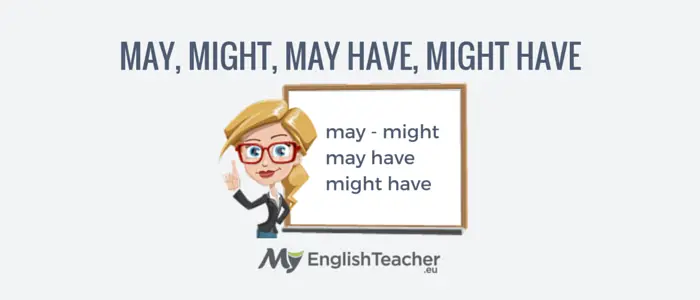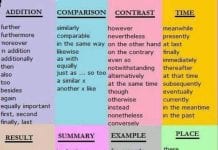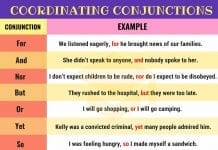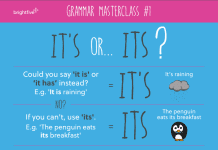
MAY and MIGHT are both used to talk about possibility.
[Tweet “ENGLISH GRAMMAR: MAY and MIGHT are both used to talk about possibility.”]
MIGHT is past tense of MAY.
Many people still think that MAY (present tense) should be used when we talk about a current situation and MIGHT (past tense) should be used when we talk about an event that happened in the past.
- I may go home early if I feel tired. (present tense)
- She might have taken the keys before going to work. (past tense)
Today, however, these two words are interchangeable. This means that there is no difference between what word you use.
You can say:
- I might go home early if I feel tired.
OR
- She may have taken the keys before going to work.
Read more:
When to Use WILL or WOULD in a Sentence?
MAY and MIGHT are both very similar in meaning, even though one would probably be more likely used in some contexts, neither choice would be incorrect.
In short, they are interchangeable. Many grammar books do suggest that you use MIGHT when something is less likely and MAY when something is more likely, but as different people can interpret this differently (depending on the scenario), it makes this rule quite flexible.
Read more:
Difference Between Rather Than, Would Rather, Had Rather and Had Better
Many grammar books do suggest that you use MIGHT when something is less likely and MAY when something is more likely, but as different people can interpret this differently (depending on the scenario), it makes this rule quite flexible.
It is also believed by some people that MAY (present tense) should be used when you are talking about a current situation and MIGHT (past tense) when you’re talking about something that happened in the past.
In practice, however, this distinction is hardly ever made in today’s English, and these two words can be used interchangeably.
- I may leave the office before you if I feel tired.
- I might leave the office before you if I feel tired.
- He may have accepted the job offer in China, if his ex-wife hadn’t wanted him back.
- He might have accepted the job offer in China, if his ex-wife hadn’t wanted him back.
Both words are commonly used to talk about possibility. Here are some examples:
- The doctor may ask you to stay a little longer.
- I might go with you if I can get the time off work.
- We may visit you in Brazil this year, if we manage to save up enough money.
- You might have to pay a little extra when you get there.
Read more:
Difference Between IF And WHETHER!
MAY HAVE and MIGHT HAVE are both common when you are talking about the past. Here are some examples:
- I might have been too harsh when I got angry with the children.
- I may have missed the opportunity of a lifetime.
- I might have accidentally picked up your keys instead of mine.
- Thinking about it now, I may have told him to meet us at 10am instead of 8am!
MIGHT HAVE is more commonly used in statements about things that could’ve happened but didn’t (counterfactuals), although MAY HAVE is also sometimes used and would not be incorrect.
- If he was honest with me, I might have forgiven him.
- If we’d met a few years earlier, we might have been perfect for each other.
- Things may have been different, if he was a bit more reliable.
- I may have agreed to lend you the money, if you hadn’t betrayed Mary’s trust last month.
Read more:
The difference between SHOULD and WOULD
MAY is more commonly used in formal speech when you’re making a request or asking for permission, but MAY and MIGHT are both used to make polite suggestions.
- May I be excused?
- May I have a look at those documents please?
- May I borrow a pen please?
- May we join you for dinner this evening, to discuss this matter further?
- You may want to reconsider your decision after reading today’s newspaper.
- You might want to try uploading the documents first.
To conclude, it is believed by some ‘grammar pedants’ that MAY should be used in present tense and MIGHT in past tense, but nowadays in Modern English, they can both safely be used interchangeably, and express equal levels of possibility in most cases.
























Some of these sentences are appalling!
1) Correct English would be: If he had been honest with me, I might have forgiven him. This is an unreal condition: he wasn’t honest, so I didn’t forgive him.
2) This is correct and confirms the point I made about 1)
3) This should read: Things might have been different, if he had been a bit more reliable.
4) This should read: I might have agreed to lend you the money, if you hadn’t betrayed Mary’s trust last month.
I.e. In addition to the problems of ‘may’ and ‘might’, there are also questions of the sequence of tenses.
Thank you!
I think the sentences could confuse learners if they have not yet learnt mixed conditionals, but they are grammatically correct. That said, they are quite unusual.
“If he was honest with me,” = an honest person, habitually honest >> “I might have forgiven him.” “If he had been honest with me, I might have forgiven him,” about an individual instance of honesty.
The same is true with number three.
Number 4, “may” with present perfect is fine. If the lights don’t work, we may have had a power cut.